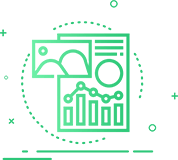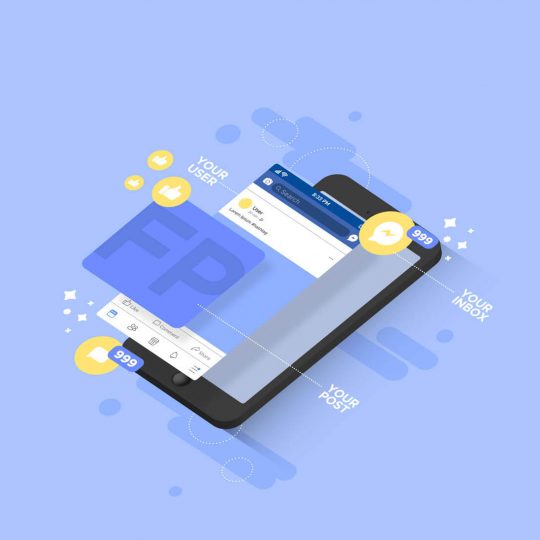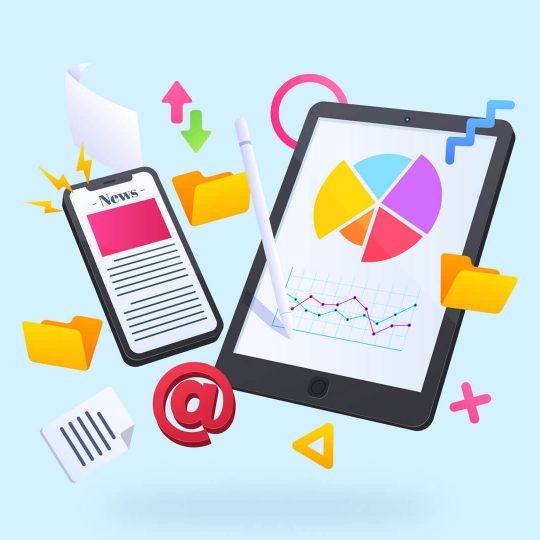
What we do
We Provided Best Pay Per Click (PPC) Services
01.
PPC Strategy
Maecenas elementum sapien in metus placerat finibus. Lorem ipsum dolor sit amet, vix an.
02.
Ad Copywriting
Maecenas elementum sapien in metus placerat finibus. Lorem ipsum dolor sit amet, vix an.
03.
PPC Optimization
Maecenas elementum sapien in metus placerat finibus. Lorem ipsum dolor sit amet, vix an.
04.
Penalty Recovery
Maecenas elementum sapien in metus placerat finibus. Lorem ipsum dolor sit amet, vix an.
pricing Plans
The Best Solutions for Our Clients
Ad nec unum copiosae. Sea ex everti labores, ad option iuvaret qui. Id quo esse nusquam. Eam iriure diceret oporteat.
Basic Plan
Tritani periculis vix an. At eam nostrud eruditi, his quem purto nulla an.
Premium Plan
Tritani periculis vix an. At eam nostrud eruditi, his quem purto nulla an.
Standart Plan
Tritani periculis vix an. At eam nostrud eruditi, his quem purto nulla an.




Hot It Works
We are Exclusive
Solution Agency
Ea pro tibique comprehensam, sed ea verear numquam molestie. Nam te omittam comprehensam. Ne nam nonumy putent fuisset, reque fabulas usu ne.

Media Promotion
Maecenas elementum sapien in metus placerat finibus.

Infographics Content
Maecenas elementum sapien in metus placerat finibus.

Frequently Asked Questions (FAQs) About Pay Per Click (PPC)
PPC (Pay-Per-Click) is a powerful digital marketing strategy that allows businesses to reach their target audience and promote their products and services through paid advertising. PPC marketing services are an effective form of online advertising that helps businesses increase their visibility and drive qualified traffic to their website, which ultimately leads to improved sales and revenue.
Businesses bid on specific keywords or phrases that are relevant to their target audience with PPC advertising. When a user searches for those keywords or phrases on a search engine like Google or Bing, the business’s ad appears at the top of the search results, which makes it more likely that the user will click on the ad and visit the website.
PPC marketing services also use social media platforms like Facebook, LinkedIn, and Twitter to display ads to users who fit a specific demographic or interest group. With advanced targeting capabilities, businesses can reach their ideal customers and drive more traffic to their websites.
One of the main benefits of PPC marketing is that businesses only pay when someone clicks on their ad. This means that businesses can control their advertising budget and ensure that they are getting the most out of their investment. Additionally, PPC marketing services provide businesses with detailed analytics and reporting, allowing them to track the performance of their ads and make data-driven decisions to optimize their campaigns for better results.
Overall, PPC marketing services are a powerful tool for businesses looking to increase their online visibility, drive more traffic to their website, and boost their sales and revenue. With the help of an experienced PPC management company, businesses can create effective ad campaigns that reach their ideal customers and deliver a strong return on investment.
Pay-per-click (PPC) advertising is a model of digital advertising in which advertisers pay a fee each time one of their ads is clicked. PPC ads can be displayed on search engines, social media platforms, or other websites that allow advertising. The cost of a PPC campaign can vary greatly depending on a number of factors.
One of the most important factors that determine the cost of a PPC campaign is the platform that you choose to advertise on. For example, Google Ads is one of the most popular PPC advertising platforms, and the cost of advertising on Google can vary depending on the competition for the keywords you are targeting. Similarly, social media platforms such as Facebook, LinkedIn, and Twitter also offer PPC advertising options, and the cost of advertising on these platforms can vary depending on the audience you are targeting and the competition for ad space.
Another important factor that determines the cost of a PPC campaign is the industry you are in. Some industries are more competitive than others, and this can affect the cost of advertising. For example, industries such as insurance, legal services, and healthcare tend to be more competitive and therefore have higher costs for PPC advertising.
The target audience for your PPC campaign can also affect the cost of advertising. If you are targeting a highly specific audience, such as people who are interested in a particular product or service, you may need to bid higher in order to get your ads in front of that audience. Additionally, the size of your target audience can also affect the cost of advertising. If your target audience is very small, you may need to bid higher in order to get your ads in front of them.
Finally, the level of competition for ad space in your industry can also affect the cost of PPC advertising. If there are many advertisers competing for the same keywords and target audience, you may need to bid higher in order to get your ads seen. This can be particularly challenging for small businesses with limited advertising budgets.
As a result, the cost of a PPC campaign can vary greatly depending on these and other factors. A small business can typically expect to pay between $1,000 to $2,000 for an effective PPC campaign, while mid-sized firms should budget in the $7,500 to $10,000 range. Large companies with extensive advertising budgets can expect to pay anywhere from $10,000 per month to upwards of $50,000 per month for a comprehensive PPC campaign. However, it’s important to note that these are just rough estimates, and the actual cost of a PPC campaign will depend on a variety of factors specific to your business and industry.
Search Engine Optimization (SEO) and Pay Per Click (PPC) are two distinct digital marketing strategies that are used to drive traffic to a website. While both methods aim to increase website traffic, they work in different ways and have different advantages and disadvantages.
SEO is a strategy that focuses on optimizing a website for search engines in order to increase organic or free traffic to the site. It involves following best practices and adapting to Google algorithms to make the website more visible and relevant to search engine users. SEO tactics include keyword research, on-page optimization, link building, and content creation, among others. The results of SEO efforts may take longer to see, but they can be long-lasting and have a significant impact on a website’s visibility and traffic.
On the other hand, PPC is a strategy that involves displaying paid ads on search engine results pages (SERPs) and paying for each click that leads to the website. With PPC, advertisers bid on specific keywords and target audiences, and their ads are displayed on the SERPs when users search for those keywords. PPC allows for more immediate results, as the ads can start driving traffic to a website as soon as the campaign is launched.
One of the main differences between SEO and PPC is the cost. While traffic from SEO is free, it requires a significant investment of time, effort, and resources to achieve results. PPC, on the other hand, involves a cost for each click from an ad to a website. The cost of PPC campaigns can vary depending on the competition for the keywords and the target audience, as well as the budget set by the advertiser.
Another key difference between SEO and PPC is the level of control over the traffic. With SEO, traffic is driven to the website through organic search results and is not controlled by the advertiser. With PPC, the advertiser has more control over the traffic, as they can target specific audiences, locations, and keywords to drive traffic to the website.
Both SEO and PPC are part of Search Engine Marketing (SEM), which is a tool for Internet Marketing. While the choice between SEO and PPC ultimately depends on the specific needs and goals of a business, both strategies can be effective in driving traffic to a website and increasing online visibility. A well-rounded digital marketing strategy may include a combination of both SEO and PPC efforts to maximize results.
Pay-per-click (PPC) is an advertising model where advertisers pay a fee each time someone clicks on one of their ads. The cost per click varies based on factors such as the platform used, the industry, the target audience, and the competition. Advertisers set a maximum bid for their ad, and the actual cost per click is determined by an auction process. This model allows advertisers to reach their target audience and only pay for actual clicks, making it a cost-effective advertising method.
Pay-per-click (PPC) advertising is a popular digital marketing strategy that involves paying a fee each time someone clicks on one of your ads. The cost of a PPC campaign can vary depending on a number of factors, including the platform used to run the campaign, the industry of the business, the target audience, and the level of competition in the market.
For a small business, the cost of an effective PPC campaign can range from $1,000 to $2,000 per month. This budget can allow for a limited number of targeted ads that reach a specific audience. Mid-sized firms should expect to budget around $7,500 to $10,000 per month for a more comprehensive PPC campaign that targets a broader range of keywords and audiences. Large companies, on the other hand, can expect to pay anywhere from $10,000 to over $50,000 per month for their PPC campaigns, depending on the level of competition in their industry.
It is important to note that the cost of a PPC campaign is not solely based on the size of the business, but also on the goals and objectives of the campaign. Factors such as the geographic location, the target audience, the keywords being targeted, and the ad placement all play a role in determining the cost of a PPC campaign. It is therefore recommended to work with an experienced digital marketing agency or PPC specialist to determine the most effective strategy and budget for your business.
Google Ads is the largest and most popular PPC platform in the world. This is mainly because Google is the largest search engine, commanding a massive 67% search market share. Google Ads allows advertisers to create ads that appear on the search engine results pages (SERPs) when someone searches for specific keywords related to their business. Advertisers bid on these keywords, and the highest bidder typically gets the top ad placement.
One of the advantages of Google Ads is that it offers a wide reach and a high volume of traffic. With billions of searches conducted on Google every day, Google Ads provides a massive audience for businesses to target. In addition, Google Ads offers a variety of ad formats, including text ads, display ads, and shopping ads, which can be customized to fit the needs of the business.
While Google Ads is the most popular platform for PPC advertising, there are other popular platforms available as well. Facebook Ads is one such platform, which allows advertisers to create ads that appear on users’ Facebook feeds. Facebook Ads offers a highly targeted audience based on factors such as age, gender, location, and interests.
Another popular platform for PPC advertising is Twitter Ads. Twitter Ads allow businesses to create promoted tweets, which appear in users’ Twitter feeds. Twitter Ads also offers targeting options based on factors such as keywords, interests, and location.
Ultimately, the choice of platform for PPC advertising depends on the business’s specific needs and goals. It is important to consider factors such as the target audience, budget, and ad format when choosing a platform for PPC advertising. A digital marketing agency or PPC specialist can help determine the best platform and strategy for a business to achieve its desired results.
Get in touch
Contact Us
Get world-class, flexible support via live chat, email, and phone. We guarantee that you’ll be able to have any issue resolved within 24 hrs.
Kolkata- 700110, West Bengal, India
Contact Us Now
Drop Us a Line
Submit your details now and we will contact you soon.








